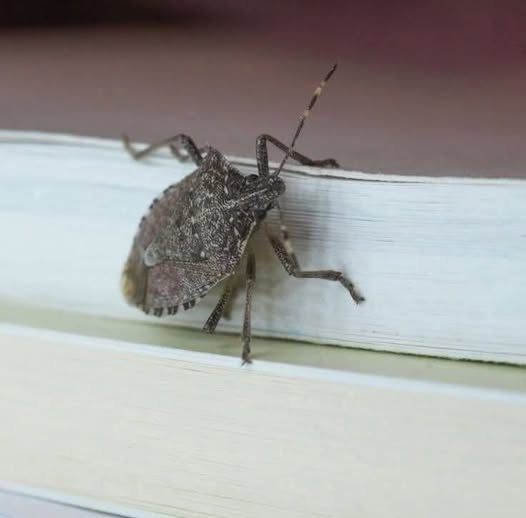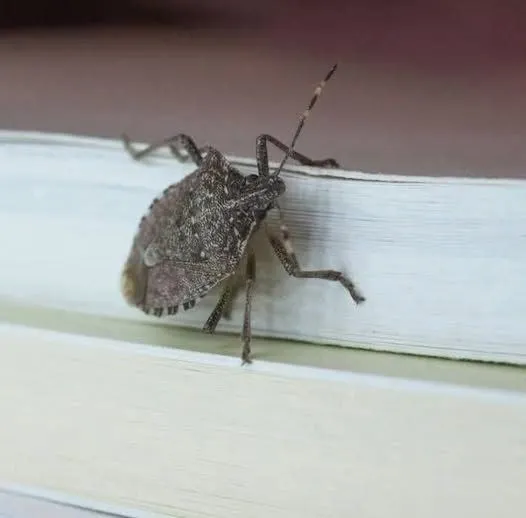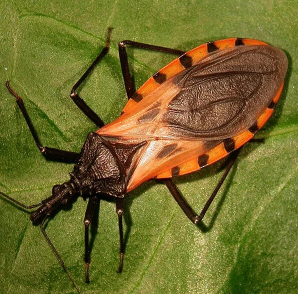If You Spot This Insect in Your Home, You Should Seek Immediate Medical Attention

Chagas Disease: A Hidden Threat Affecting Millions Worldwide
For many, Chagas disease is an unfamiliar name, but for those affected, it is a life-changing diagnosis. The parasitic infection, primarily transmitted by kissing bugs, affects millions globally, particularly in Latin America. Despite its severity, Chagas remains one of the most neglected tropical diseases, often overlooked by healthcare systems, leaving many struggling to find proper treatment and support.

A Shocking Diagnosis During Pregnancy
Elvira Rodríguez was excited to become a mother, but her joy was overshadowed by a surprising and terrifying revelation—she had Chagas disease. She learned of her infection during her first pregnancy, a time when she was already navigating numerous health concerns. Her biggest fear was passing the disease on to her baby.

Determined to protect her child, Elvira began treatment immediately. Doctors closely monitored her pregnancy, taking preventive measures to reduce the risk of transmission. After months of uncertainty, she breathed a sigh of relief when her daughter was born healthy and tested negative for Chagas. However, Elvira’s journey was far from over. She had to undergo extensive treatment, enduring severe side effects, while continuing to undergo regular medical check-ups to monitor her condition.
A Mother’s Fight for Answers
For Elvira Idalia Hernández Cuevas, Chagas was an unknown threat until it directly affected her family. She first heard of the disease when her 18-year-old son was diagnosed after donating blood. The news was shocking—how could her son have an illness she had never even heard of?

Desperate for information, she embarked on a frustrating journey to find proper medical care. Like many other patients in Mexico, she quickly discovered that Chagas is largely ignored by the healthcare system. Many doctors dismissed the disease, downplaying its risks or simply lacking the knowledge to diagnose and treat it properly.
What is Chagas Disease?
Chagas disease is caused by the Trypanosoma cruzi parasite, which is primarily transmitted through the bites of triatomine insects, commonly known as kissing bugs. These bugs feed on human blood and leave behind feces that contain the parasite. When a person unknowingly rubs or scratches the bite site, the parasite can enter the bloodstream.
Although the disease is most common in Latin America, kissing bugs and cases of Chagas have also been reported in parts of North America, Europe, and Australia. Despite its global presence, Chagas remains widely unrecognized outside of regions with high infection rates.
A Silent Epidemic
According to estimates, Chagas disease affects between 6 to 7 million people worldwide, with approximately 8 million cases concentrated in Latin America. If left untreated, the disease can lead to severe complications, particularly heart and digestive system damage. Every year, around 12,000 people die from Chagas-related complications.
Despite these alarming numbers, Chagas disease is not considered a major public health priority in many countries. The World Health Organization (WHO) classifies it as a neglected tropical disease, meaning that research, treatment, and awareness efforts are significantly underfunded.
In some regions, the disease is spreading beyond traditional transmission methods. Blood transfusions, organ transplants, and mother-to-child transmission have all been documented as potential ways the parasite is passed along. Unfortunately, due to limited screening and awareness, many infected individuals remain undiagnosed for years, only discovering their condition when severe symptoms develop.

The Challenges of Treatment
Treating Chagas disease is not easy. Two main medications, benznidazole and nifurtimox, are available, but they are far from perfect. These drugs are more effective in children and younger patients but have limited success in adults. Additionally, they come with a range of serious side effects, including nausea, headaches, dizziness, and allergic reactions.
Elvira Rodríguez experienced these side effects firsthand. Despite feeling unwell during treatment, she persisted, knowing that early intervention was crucial to managing the disease. Even after completing her treatment, she continues to visit doctors annually to monitor her condition and ensure the disease does not progress.
A Mission to Raise Awareness
Elvira Idalia Hernández Cuevas refused to accept the lack of resources and information about Chagas. Motivated by her son’s struggles and her own difficulties in finding proper care, she took action. Today, she is the president of FINDECHAGAS, an organization dedicated to advocating for Chagas patients and raising awareness about the disease.
Through her work, Hernández aims to improve access to early detection, treatment, and education about Chagas disease. She believes that no family should have to go through the confusion and frustration she experienced when her son was diagnosed.
A Call for Global Action
Chagas disease continues to be a silent crisis, affecting millions but receiving little attention. While progress has been made in research and treatment, there is still a long way to go in ensuring that patients receive the care they need.
Efforts to increase awareness, improve medical training, and provide better access to treatment are crucial in combating this neglected disease. Organizations like FINDECHAGAS are leading the way, but they need more support from governments, healthcare systems, and the global community.
For people like Elvira Rodríguez and Elvira Idalia Hernández Cuevas, Chagas is more than just a medical condition—it’s a daily battle for recognition, treatment, and hope. By spreading awareness and supporting initiatives to combat the disease, we can help ensure that future generations no longer have to suffer in silence.